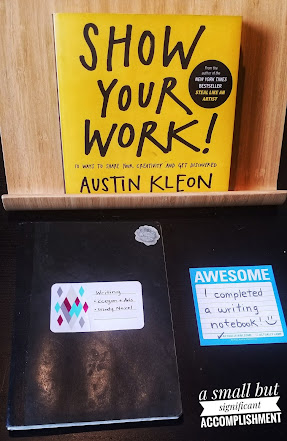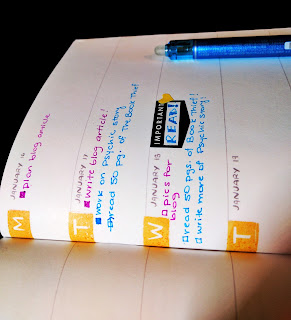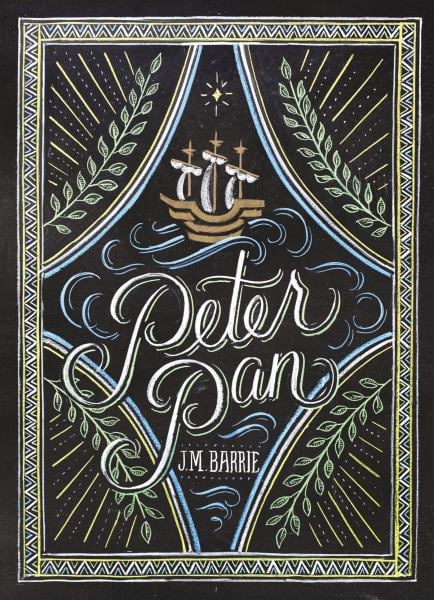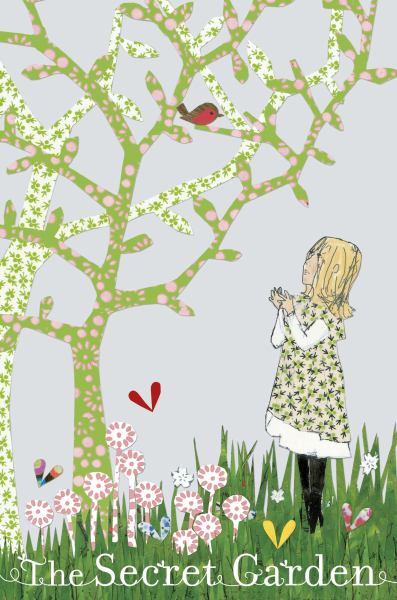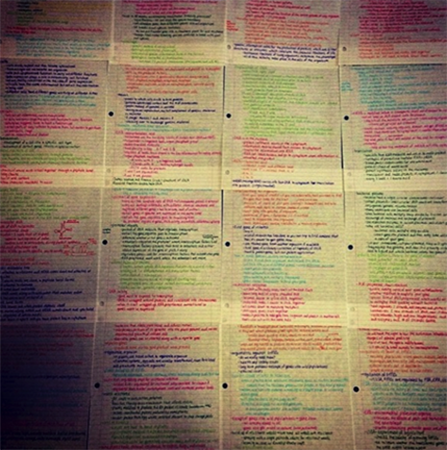I know for most people, picking a word to drive them through the upcoming year is prep that's done before the New Years but honestly, sometimes you need the time between Christmas and New Years to recoup from the stresses of the past year as a whole, to reflect, and to restructure what you want from your life. This is what I've spent most of the last few days doing - lazing about my house (because yay! - finally), reflecting on what a throwaway year 2019 was for me, and what I can do so that I won't feel the same way again come the end of 2020. This isn't something I do every year but since I've felt so underwhelmed by 2019, I'm making moves to make 2020 more productive and exciting.
The first thing I did was brainstorm what I wanted out of the next year - what goals I wanted to accomplish, what events I was looking forward to, changes I wanted to make, etc. This is pretty generic but I think it's important to really think through and analyze the different facets of your life. After this, I tried to determine what the most important goal/task was for me this year. You know, the one where if everything else fell through, it was okay because at least you accomplished this one specific thing, which made it all worth it. For me, this was the goal of completing a manuscript. I've been dabbling with writing since I was nine and I've had "write a novel" on my bucket list for way too long. This is one of those goals that I've convinced myself I'm not skilled or disciplined enough to accomplish,
but no longer! This is the year I will write a first draft to a book!

From there I tried to pick a word that encompassed not only this goal but me as a person (this is play on Ali Edwards' One Little Word project which you can check out
here. Can you guess what I came up with?
My word for the year is
CREATE.
It is pretty spot on for my goal to write because I want to create a story and a book and in order to do that I need to let go the idea that I'm not a creative person. But then when I thought more about the word, I thought, well, what else do I want to create in my life? I looked back at my brainstorm and realized that there were a lot of different things that I could create this year.
I found that I wanted to create:
- Memories
- Better relationships
- Content
- Good Habits
- Awareness
From there I asked myself what kind of things I wanted to do for each category and what actionable steps I could come up with to see some of these goals accomplished throughout the year. I did this by asking myself how I wanted to create more memories, better relationships, etc and came up with at least two different actionable things I could do to create that change. For example, I would keep a memory journal and see more of New York City to help create memories and would make sure to see/call my family once a week as well as host an event at my house once a month. This process looked like this:

This is a pretty good place to start with goal setting but if you want to take it a step further, what I did next was see how often each kind of task needed to be done. I separated them into daily (by which I mean mostly every day but if I miss one or two I really shouldn't be mean to myself about it), weekly (as in these specific days each week, I want to do this task), and monthly. I put them on a sticky note so that I knew which tasks needed to be checked on when.

This whole process is much easier to accomplish when you have a planning system in place to remind you to check on these things. I would also recommend having some sort or review system to check in with yourself once a week or once a month (I'm doing both) in order to see which tasks and goals have been working or not and why, and to see if anything has to be tweaked for the next week/ month.
Finally though this doesn't have anything to do with your word of the year or setting goals necessarily, but I would recommend that you ask yourself questions about your previous year and what you hope to accomplish for the upcoming year. It may not seem important, but having done this in the past and looking back, it was so interesting to see what my priorities were and what I thought of myself at the time. Last year I used Susanna Conway's Unravel Your Year, which you can find
here by subscribing to her newsletter. The workbook has you reflect on your previous year and write about who you hope to be and what you hope to accomplish in the upcoming year. I really truly recommend it. Because I had computer issues this year, I copied the questions and prompts I thought were most important into my journal and answered them.


I understand that this level of planning and retrospection is not for everyone and that's completely fine. But personally, I feel like I'm more likely to accomplish my goals if I know what they are and how I plan to see them through.
I know that the way I picked my word is very specific to me but here are some other examples of words you pick for yourself this year and how you can think of goal setting for them:
BRAVE
In what ways do you want to be brave this year?
What things were you not brave enough to do before that you'd like to try now?
--> This could lead to being brave to be more honest and open with people, being brave to move to a new city or make a career change, being brave enough to put yourself out of your comfort zone or start a project you've been scared of starting, etc.
MINDFUL
What would you like to be more mindful of in 2020?
What have you not been mindful of in the past and how can you change that this upcoming year?
--> This could lead to being more mindful of the people around you, being more mindful of how you spend your time (looking at you social media), being more mindful of your mindset (if you're negative and hard on your self) and finding a way to change that, how mindful you are of how you eat (looking at your candy and junk food), etc.
BELIEVE
What negative beliefs have you had (about yourself or others) that you would like to change in 2020?
-->This could lead to trying to believe more in yourself, to dive deeper into your faith (if you have one - to each their own), to believe the best of people instead of focusing on the negatives, to believe that you are not your past or that you can change, etc.
After coming up with a word and brainstorming how you want to apply that word to your life, I would then come up with actionable steps to create the changes you want to see in your daily life.
I hope that has helped you guys in some way. I hope you're having a lovely day and that you're excited about all of the possibilities 2020 has in store for us!


